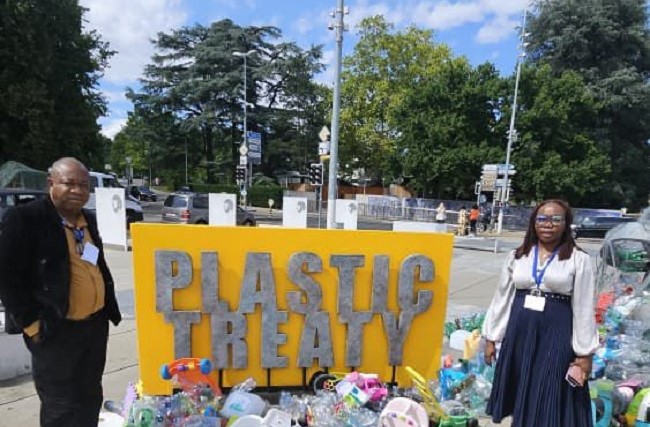Indigenous Peoples, waste pickers, and unionised workers are jointly demanding a binding Global Plastics Treaty grounded in justice and human rights as the fifth session of the Intergovernmental Negotiating Committee (INC-5.2) enters the second week in Geneva.
This is contained in a statement made available on Friday, August 8, 2025, in Lagos and jointly signed by the media representative of the groups.

They are Nicolás Martínez, International Alliance of Waste Pickers (IAWP); Catalina de Onís, Just Transition Alliance (JTA); and Cheyenne Rendon, International Indigenous Peoples Forum on Plastics (IIPFP).
The groups, representing frontline communities most affected by plastic pollution, have demanded that the treaty addresses plastics’ full lifecycle – from fossil fuel extraction to waste disposal.
They have also rejected “false solutions” such as plastic credits and market-driven schemes.
“Our food, water, and bodies are being poisoned by a crisis we didn’t create.
“The treaty must protect indigenous rights and knowledge,” said Viola Vi Waghiyi, a Yupik leader from Alaska.
The International Alliance of Waste Pickers, representing over 40 million workers, stressed the need for formal recognition and just transition measures.
The International Trade Union Confederation called for binding labour standards and safe working conditions across the plastics value chain.
“We are the ones facing this crisis on the streets and dumpsites,” said Soledad Mella, a waste picker leader from Chile.
The groups insist that, without power, resources, and decision-making in the hands of those most impacted, the treaty risks failing the communities it claims to protect.
However, a key Nigerian delegation to the meeting, Dr Leslie Adogame, the Executive Director, Sustainable Research and Action for Environmental Development (SRADev Nigeria), also corroborated these views.
Adogame stressed the need for Africans to speak with one voice, insisting that developed countries must finance efforts to tackle plastic pollution in Africa.
He urged the continent’s leading representatives to prioritise key African concerns, including capping soaring plastic production, and to commit to cutting it by 50 per cent by 2030 to curb its harmful impacts.
He tasked the leading voices representing the continent to focus on key African priorities, adding that a cap on the soaring productions of plastic was essential to reduce all the harms they cause, commit to the reduction of plastic production by 50 per cent by year 2030
“A Key African Priorities on the soaring productions of plastic is essential to reduce all the harms they cause, commit to the reduction of plastic production by 50 per cent by year 2030.
“Priorities such as global reduction of plastic production, financial and technical support, toxic chemical control, just transition for workers and waste trade reduction among others,” Adogame said.
By Fabian Ekeruche
